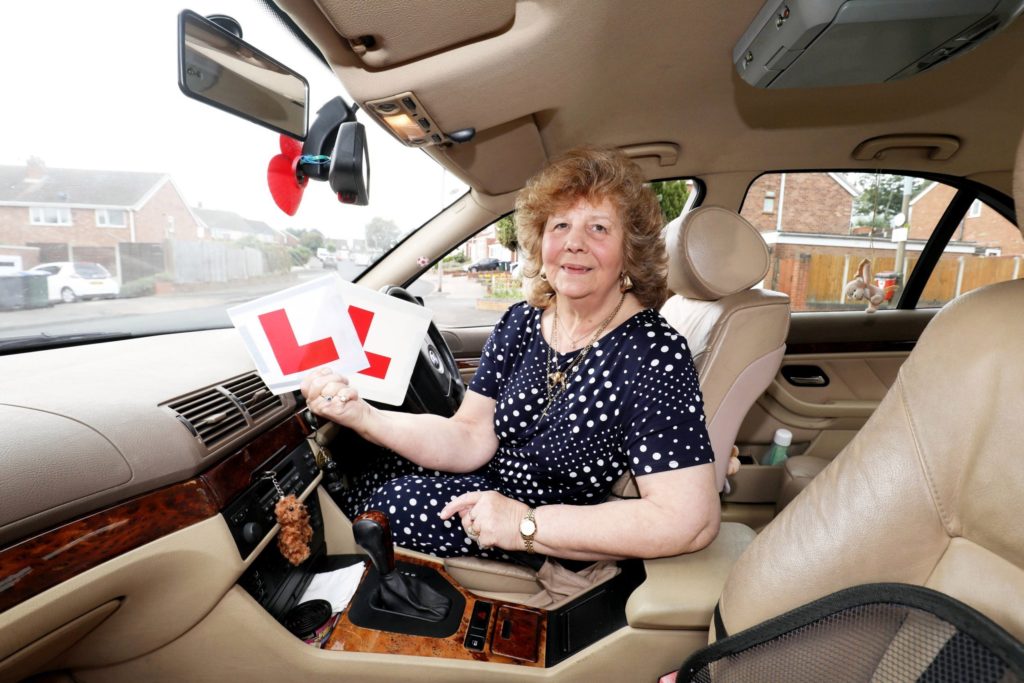Life as a PhD commuter
Are you a commuter or thinking of commuting? You’re not the only one and here are a few tips!
Increasingly, university students are choosing to commute, especially postgraduate students. This may be due to a number of reasons such as family commitments, part-time jobs, financial circumstances or general motives.
My reasons for commuting:
- Financial circumstances – I want to save some money for my future, spend a little on fun things like holidays and possibly save for another Masters… can’t have too many degrees!!!
- Family commitments – I have a doggo child and I could not spend another 4 years without her – 3 years was certainly enough
Going from living close to university to then commuting was more of a challenge than I expected. Not to mention the struggles of moving back home. The commute was difficult at the beginning but I soon became accustomed to it. So I am here to tell you about a few of the bumps in the road… (you get it?!) and how I dealt with them.

Travelling in…
First and foremost you need to decide whether you are going to be using public transport or driving. There are flaws and benefits to both of them. I decided to go by train… mostly because 30 hours of lessons later, driving still does not agree with me. Kerbs and roundabouts are most inconvenient, and as for the gear stick… who needs that extra hassle in their life?!

So to drive or not to drive:
✔ Carrying work made easy – laptop, lunch and books
✔ Leave for university or for home at any time
✔ Can car share, which may work out cheaper than public transport
✖ Traffic, road works and tiredness after a long day
✖ Car parking access
TIP 1: The University does offer student parking permits but these are very limited and you must apply for this before you start your academic year – this cuts the cost of parking dramatically. There is also a criteria you must meet such as being a carer, living more than 10 miles away from the uni etc.
Public transport – advantages and disadvantages:
✔ You can work on a train or bus – I always make sure I get a table seat and bring my headphones
✔ After a long day at uni, sitting on a train/bus may be safer and more relaxing than having to concentrate on driving
✔ The University has its own train station!
✖ Trains can sometimes be expensive, cancelled, delayed and overcrowded
TIP 2: Buy a railcard! Even if you’re a mature student you can still buy an 18-25 railcard, you just have to prove you are a student with your student ID.
TIP 3: Book in advance so you can reserve a seat and set alerts to the train you are hoping to travel on. This way you can keep up-to-date with any changes or delays to your train.
TIP 4: Try and travel on the off-peak and less busy trains, even if it is a bit longer. Sometimes, this can mean being more productive for your work as you can sit and focus
TIP 5: Pack an academic paper to read in case there is no signal or WiFi – alternatively a good podcast will always pass the time…

Socialising… Inside university
This may be something you’re worried about as you will not always be on campus and you will not have housemates. However, as a commuter there is still so much you can get involved in.
- Part-time jobs on campus – postgraduate ambassador, teaching associate, brand ambassador etc – all of which I have very much enjoyed and because of the flexibility of the jobs they fit easily into my schedule. It is also a great way of getting to know your campus, making friends from different courses and earning a bit of money.
- Sports teams – there’s 55 to chose from, just visit university sports page.
- Volunteering or joining a society – there’s over 300 to choose from, just visit the guild website.
Sports and societies…
TIP 6: If you decide to join a sport, do not choose one that requires you to be at training everyday or at ridiculously early or late times in the day. You need to be sensible about what fits into your timetable. Alternatively, instead of joining a BUCS team, you could join a campus sport like football, netball or hockey. Your school or department will have a team, meaning making friends within your school could not be easier and these teams tend to be more relaxed, flexible and only once a week.
TIP 7: Join the UoB commuter society – they organise and advertise social and sports events for commuters only, no matter how far you’re travelling from. They are a really easy way to meet others that are in the same boat or train… (I have all the travel puns).

Socialising… Outside university – Just as important
Make a good set of friends where you live, this is definitely something I have found that has very much helped me. Your PhD can be lonely at times and without the supportive friends and family at home I would have been crawling up the walls. You probably won’t be going to university everyday so it is important to also have a good social network at home. Additionally, being friends with none academics (muggles) and people that have what they like to call ‘real jobs’ is really important as you can share different types of stresses and not just get bogged down with university pressures.

Time keeping
Being a commuter, you need to be extremely good at time management as you have all the commitments of other students but also the train/bus/car ride. Sometimes you may be able to achieve what you need to do that day from home.

TIP 8: Organise skype meetings with your supervisor
TIP 9: If there is a course I’d like to attend, a lot of the time they are panoptoed or contact the course lead and see if there is a way of getting hold of materials from home (not always available)
TIP 10: Gain access to the software you may need from home by visiting IT Services and follow the instructions for remote access for PhD/Research students.
So there we have it! If you have any questions about student life, please do not hesitate to contact me either through my Instagram – @sparknote – or email me.
Katie
